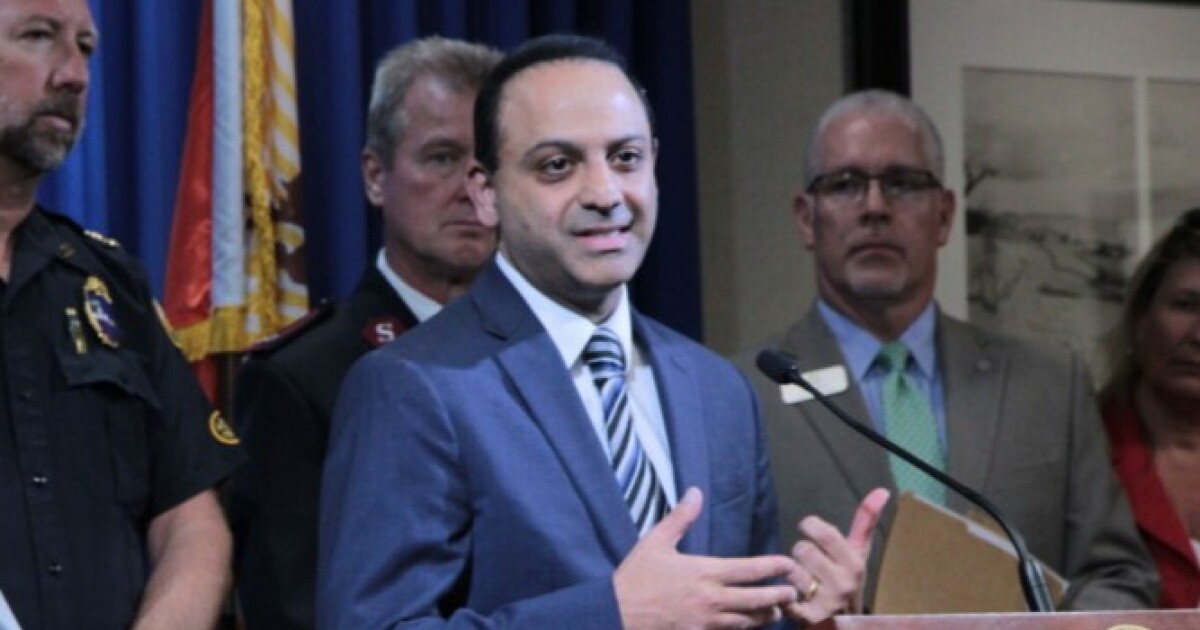In recent developments, health leaders in Jacksonville have strongly opposed the proposed rollback of childhood vaccine mandates spearheaded by Florida Governor Ron DeSantis and State Surgeon General Dr. Joseph Ladapo. This initiative aims to phase out longstanding vaccination requirements for schoolchildren, a move that has raised significant concern among medical professionals and community leaders.
### Opposition from Health Leaders
Dr. Sunil Joshi, Jacksonville’s chief health officer, publicly denounced this initiative, stating that such a rollback would diminish immunization rates and expose children, caregivers, and school personnel to preventable diseases. In a statement released through Mayor Donna Deegan’s office, Dr. Joshi emphasized the historical importance of vaccines, calling the proposal a “profound threat to public safety.” His address echoes sentiments from authoritative bodies such as the American Academy of Pediatrics and the American Medical Association, which warn that deregulating vaccine mandates could reverse decades of accomplishments in controlling contagious diseases such as measles, mumps, and whooping cough.
Echoing these concerns, Dr. Ali Kasraeian, the president of the Duval County Medical Society, reiterated the urgency of maintaining vaccine mandates. He highlighted a troubling reality: in 2023 alone, the U.S. has witnessed over 1,400 measles cases and around 10,000 cases of pertussis, nearly double from the previous year. Kasraeian stated that most outbreaks occurred among unvaccinated individuals, reinforcing the need to keep vaccination safeguards intact.
### The Public Health Perspective
Vaccines have long been recognized as one of the most effective tools in the public health arsenal against communicable diseases. Dr. Joshi characterized illnesses that arise from lower immunization rates as a public health risk that can directly lead to increased absenteeism in schools, resultant economic strains on families, and disrupted community well-being. He stressed that the proposed policy should not be framed as an issue of “freedom,” but rather as a departure from crucial health safeguards essential for protecting children and communities.
Kasraeian expanded on this point, suggesting that genuine medical freedom should prioritize collective safety. By ensuring that children can safely attend school, parents can go to work without fear for their children’s health, and communities can thrive without the threat of preventable diseases.
### The Economic Argument
In addition to the profound health implications of vaccine mandates, Dr. Joshi made an economic case for their continuation. He pointed out that illness-related absenteeism leads to lost productivity—not just for students but for parents as well. The economic burden of preventable diseases can exacerbate financial hardship in households, small businesses, and community infrastructures.
This interconnection between public health and economic stability highlights the broader ramifications of vaccine policy. A healthy population contributes to a productive workforce, thereby supporting local economies. In this light, the decision to phase out childhood vaccine mandates represents not only a public health crisis but an economic one as well.
### Community Response and Collaboration
The leaders’ call for maintaining vaccine mandates has sparked dialogue within the community. In his appeal, Kasraeian expressed a willingness to collaborate with state officials to safeguard vaccine protections while echoing concerns from various public health organizations. His proactive approach underscores the necessity for unified efforts in addressing not just current public health challenges, but also in establishing policies that will protect future generations.
### Conclusion
The debate surrounding childhood vaccine mandates in Florida raises significant questions that go beyond individual freedoms or parental choice. It encompasses public health responsibilities, economic consequences, and the long-standing safety of communities. Both Dr. Joshi and Dr. Kasraeian have articulated that the push for dismantling these mandates threatens to reverse years of progress against preventable diseases.
As Jacksonville’s health leaders advocate for vaccine mandates to remain in place, the conversation they have sparked must continue. Ensuring that children are protected against preventable diseases is not just a matter of personal choice; it is a societal obligation. The potential repercussions of phasing out vaccine mandates are substantial—not only for health outcomes but also for economic stability, community trust, and the very fabric of societal safety.
It is crucial that as citizens, we engage in this discussion, weighing the implications of health policy on our communities. By valuing public health and maintaining robust vaccination programs, we can foster a healthier, more resilient future for all.
Source link










